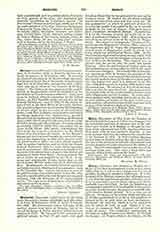

Mercy, CORPORAL AND SPIRITUAL WORKS OF., Mercy as it is here contemplated is said to be a virtue influencing one’s will to have compassion for, and, if possible, to alleviate another’s misfortune. It is the teaching of St. Thomas Aquinas that although mercy is as it were the spontaneous product of charity, yet it is to be reckoned a special virtue adequately distinguishable from this latter. In fact the Scholastics in cataloguing it consider it to be referable to the quality of justice mainly because, like justice, it controls relations between distinct persons. It is as they say ad alterum. Its motive is the misery which one discerns in another, particularly in so far as this condition is deemed to be, in some sense at least, involuntary. Obviously the necessity which is to be succoured can be either of body or soul. Hence it is customary to enumerate both corporal and spiritual works of mercy. The traditional enumeration of the corporal works of mercy is as follows: (I) To feed the hungry; (2) To give drink to the thirsty; (3) To clothe the naked; (4) To harbor the harborless; (5) To visit the sick; (6) To ransom the captive; (7) To bury the dead. The spiritual works of mercy are: (I) To instruct the ignorant; (2) To counsel the doubtful; (3) To admonish sinners; (4) To bear wrongs patiently; (5) To forgive offenses willingly; (6) To comfort the afflicted; (7) To pray for the living and the dead. It will be seen from these divisions that the works of mercy practically coincide with the various forms of almsgiving. It is thus that St. Thomas regards them. The word alms of course is a corruption of the Greek elenmosune (mercy). The doing of works of mercy is not merely a matter of exalted counsel; there is as well a strict precept imposed both by the natural and the positive Divine law enjoining their performance. That the natural law enjoins works of mercy is based upon the principle that we are to do to others as we would have them do to us.
JOSEPH F. DELANY

